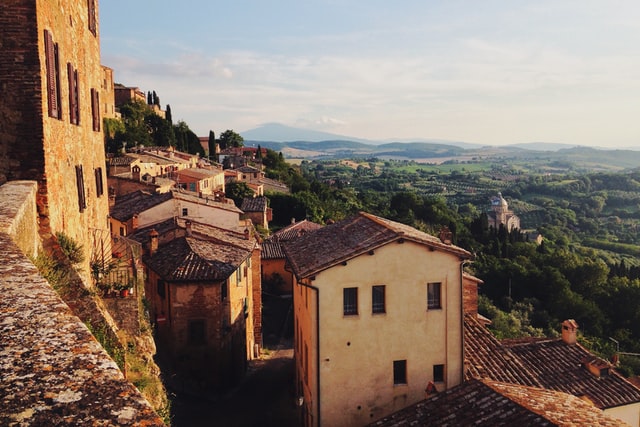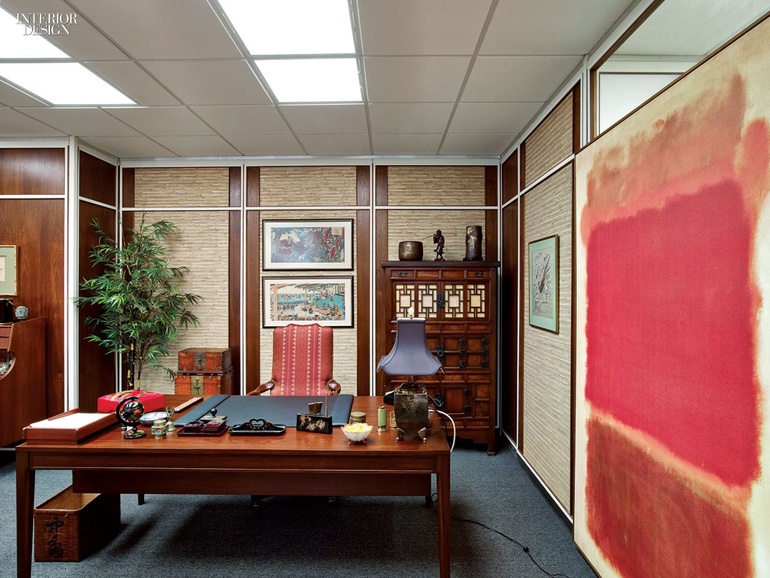The Lure of Other Places
“I’ve always wanted to live in…” I’ve heard it a hundred times. Japan. New York City. Dubai. Tuscany. Greece. Australia. Los Angeles. Costa Rica. The Shire. A big city. A village. A cottage by the sea.
It’s easy to get caught up in the idea of a particular place. Here’s Debbie Travis on Tuscany: “We fell in love and instinctively knew it was a special place, a peaceful place, a historic place, a place of re-birth.” And her neighbour and friend, Frances Mayes: “I was overwhelmed by the beauty of the towns, the vivacity of the people, and the easy sense of time.”

Peter Mayle is famous for his relationship with Provence. “We had talked about it during the long gray winters and the damp green summers, looked with an addict’s longing at photographs of village markets and vineyards, dreamed of being woken up by the sun slanting through the bedroom window.”
And that’s just Europe. We all know someone who is fascinated by Japan. The word “Japanophile” dates back to the late 1700s, according to Wikipedia. Think of Mad Men’s Burt Cooper, with his tentacle porn artwork and insistence that visitors to his office remove their shoes.

Some places are more commonly yearned after than others, but I like to think every place has its fans. I once knew a guy who was obsessed with the Polynesian island of Tuvalu. Even a Google search for the phrase “I’ve always wanted to live in Saskatchewan” returns a hit (although it’s followed by “or PEI, but…”).
Judge not
I used to judge people who were overly into another country or culture. I suspected they were running away from something, and projecting their simplified ideas of a culture onto a complex reality. I thought they should try harder to be happy where they are, or fix whatever was inside them that they thought another place would cure.
Maybe that judgmentalness came from my childhood. When I was a kid, we didn’t live in any one place for more than three years — I had lived on three continents by the time I was three. My parents framed it as a grand adventure, and it wasn’t until I was an adult that I consciously realized that we moved constantly because my dad was always looking for happiness in the next place.
“Judge not, lest ye be judged yourself.” Or more accurately, judge not because you’re just gonna end up doing the thing you’re judging. This is a lesson I learned over and over as a parent, and I’ve learned it again on this topic.

In October of 2018 I started studying Korean, for reasons I will expand on another day, and soon found myself slipping down the slope of yearning for another place: Seoul, sparkling, mountainous, vibrant Seoul. Like a teenager with a crush, I followed Instagram Seoul fan accounts, I read the Wikipedia pages, I started saving and planning. Against all reason, I feel a physical pang at the idea of never going there, or living there.
So I became curious. Where does the yearning for other places come from? What happens to people who fulfill it? Are they disappointed? Was it everything they were looking for? Both?
What is it about places?
A place can catch in your imagination and lodge there. Bright lights or no lights at all. Deserts or rainforests. Friendly neighbours or busy anonymity. Quiet solitude or inspiring bustle. The way the light falls.
For some folks it’s the weather; for some reason they or their ancestors chose to live somewhere cold or dreary, and they dream of living somewhere the sun always shines. Maybe it goes the other way, and people who live in hot dry climates dream of mist and coolth? (I can’t imagine.)
Some people dream of beauty. They love the idea of opening the shutters every morning to reveal a hazy Tuscan vista or a tiered Buddhist temple instead of a bunch of Norway maple trees and a circa-1960 high-rise apartment building.
And then there’s “lifestyle”: life in your target place seems better, more appealing. Usually, as with Tuscany or Provence or anyplace rural or beachy, it’s slower. Life is just simpler there, people say. As Mayes says, “the easy sense of time”.
The appeal of cities, on the other hand, might be that everyone else is busy. People are going places, on their way to do things. It seems like you, too, could find something to do, or be inspired, or join forces with someone, if you move to a city where the kinds of things you’re interested in happen.
Or is it you?
The one thing all yearners have in common is that they’re looking for something different: a clean break, a fresh start, new ideas and challenges. They’re running away from something, or toward something. Whether it’s Japan or Italy or New Zealand, yearning is not about the place; it’s about the yearner.
At its worst, yearning is about running away from your mistakes, or your whole self. The main allure of the next place is that it’s a place where you’ve never screwed up. It seems like an opportunity to be a new person.
On the other hand, a new place might offer a chance to become a better version of yourself, or to know yourself better. In Under the Tuscan Sun, Frances Mayes says “I had the urge to examine my life in another culture and move beyond what I knew.”
At its best, yearning is about values. A person who values beauty might be frustrated by ugly, drab surroundings and wish for a well-placed gargoyle, a fresh coat of bright paint, or a neat row of cypress trees. A person who values community might want to get away from their lonely suburb and move somewhere where folks are more gregarious and generous.
Mayes, again: “Where you are is who you are. The further inside you the place moves, the more you identity is intertwined with it. Never casual, the choice of place is the choice of something you crave.”
Does it work?
Does the geographic cure actually work? Is the place you’ve been yearning for everything you dreamed of? Can you reinvent yourself by transplanting yourself? And when it does work, why?
I don’t know. (Sorry.)
This is where I wander into the realm of conjecture. This is what I think so far.
I think that finally living in a place you’ve been yearning for must always be a little disappointing, like meeting a celebrity or dating someone you’ve had a crush on. When we put a place or a person on a pedestal, we deny their flaws, but everyone and every place is flawed.
I think that it won’t work if you’re trying to get away from some flaw in yourself. Wherever you go, there you are, after all, with all your flaws intact and ready to manifest in the same tedious ways despite your new locale.
I think moving to your beloved place works best when there is a real values mismatch between you and your current home, and a better match in the next place. Or rather, a better chance to honour your values in the next place, because places don’t really have values — but they can offer a context in which you can embody your values more easily.
How to improve the odds
In order to figure out whether living in your beloved place will really change your life the way you hope it will, you need a clear-eyed understanding both of yourself and of the place you’re going.
Ask yourself how well you really know the place. Is it perfect, in your mind? That’s a red flag: Places, like people, are never perfect. Seek the perspectives of people who have moved there, people who have always lived there, and people who have left. Grit your teeth and watch a few of those “Why I could never live in X” videos on YouTube. (Except the ones where the “why” is just racism.)
Look within and ask yourself what you hope to gain from relocating. What do you want to be different? What would that look like? What’s important about that? Be your own devil’s advocate: If you were doing this to try and fix something about yourself, what would that thing be? Is there a way to get the change you want in the place you live now?
In this way, the yearning for another place can help you learn about yourself before you even go. Understanding what draws you — what you crave, as Mayes puts it — will clarify your values and shed light on what’s missing in your life now.
My hunch is that a new yearning for someplace else is a sign of a shift in values. A value like challenge, curiosity, or adventure, previously satisfied (or smothered) by university study, an intense career path, or raising children, suddenly elbows its way to the front of the pack and demands to be addressed.
For me, I have a drive for adventure which has been on the back burner for 20 years. I’m also curious about who I am in a different context. I have been in Toronto for 23 years, in this house for 14. What part of “me” is just habit and environment, and what is actually me?
Time to go
The truth is, research, inner work, and prognostication will only get you so far. Beyond a certain point, the only way to know is to go. If you’ve done your due diligence and are pretty sure you’re not expecting miracles, if you can go without throwing yourself into debt or leaving dependents stranded — go. Go, learn, grow.
A Final Note of Caution
For every famous account of someone (usually privileged) victoriously settling down or discovering a new way to be in a new place, there are critiques pointing out that they have romanticized or appropriated the local culture, exploited the local economy, or in some other way oversimplified, flattened, or commodified what is, by definition, someone else’s home.
If you’re in a position to move to another place, it’s your responsibility to do so with respect. The world is not an amusement park. Just because you can go somewhere, buy a cheap house and hire some locals, walk around in some nature, and pat yourself on the back for following your dreams, doesn’t mean you should. Do your homework. Learn about local history and politics. Learn who is indigenous to the land, who takes care of it, and what struggles they face. Do not add to those struggles.
And when you get there — send me a postcard!